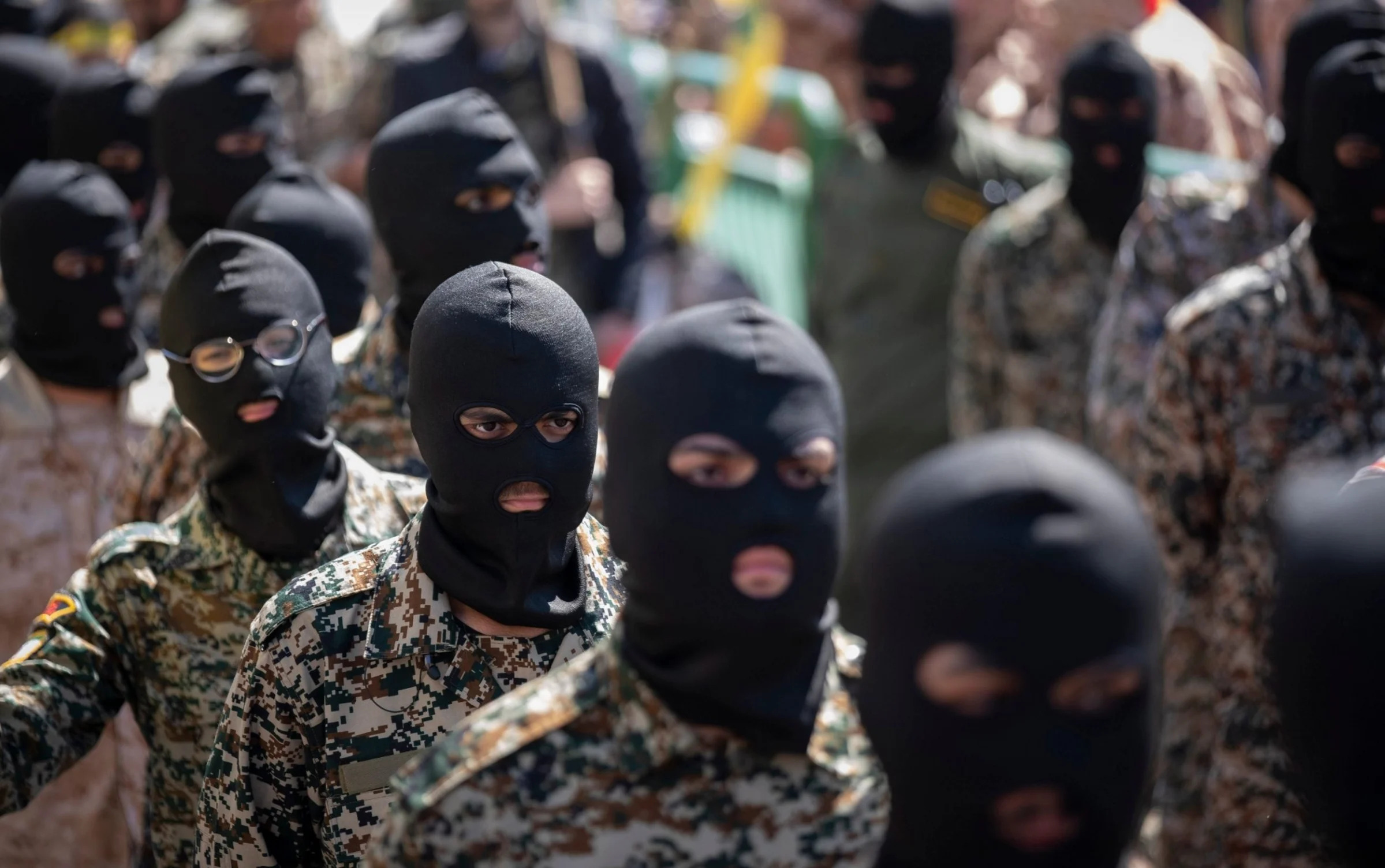When news of the Iranian strikes on Israel reached an Islamic Revolutionary Guards Corps (IRGC) base in the southeastern city of Zahedan, soldiers poured outside to celebrate.
As he witnessed his comrades’ euphoria, 24-year-old Abdul Naseri (a pseudonym has been used to protect his identity) was gripped with a different emotion.
The Islamic Revolutionary Guards Corps was formed to defend the regime from internal dissent and balance the power of the formerly royalist armed forces -
“They were chanting ‘leader, we are ready, we are ready’ and a commander even brought sweets, saying ‘with the hope of liberating Palestine’ as he distributed them among us,” he said by telephone from his checkpoint.
“I’m scared now. The commander told us we should get ready. I don’t want to go to war with any country. All I want is to live and have a safe life,” he said.
His fears are not unfounded.
If Israel chooses to retaliate for Iran’s April 14 rocket attack by striking targets inside Iran, it is IRGC facilities and the men serving on them that will likely be at the top of the target list.
And low-ranking members of the IRGC have been left in no doubt that war is a real possibility.
Movement of heavy weaponry, including missiles and tanks, was also seen in the western part of the capital Tehran on Monday night following reports of an imminent retaliation strike by Israel.
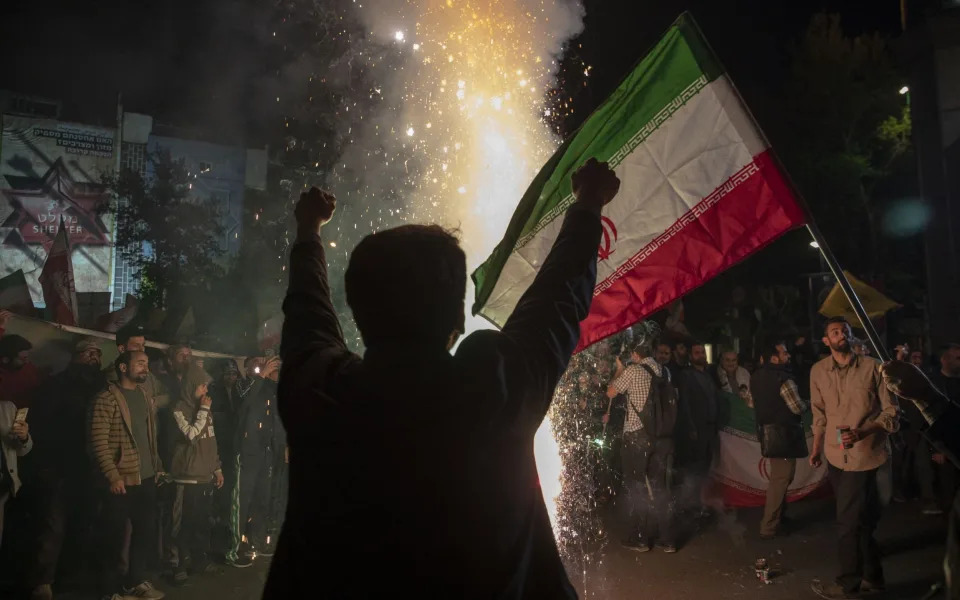
![A billboard depicting named Iranian ballistic missiles in service, with text in Arabic reading 'the honest [person's] promise' and in Persian 'Israel is weaker than a spider's web', in Valiasr Square in central Tehran](https://s.yimg.com/ny/api/res/1.2/s1b.jQrCsCNUXGEDftCyrA--/YXBwaWQ9aGlnaGxhbmRlcjt3PTk2MDtoPTYwMDtjZj13ZWJw/https://media.zenfs.com/en/the_telegraph_258/5fc92a8d68d34b4a5dbb087cc09a4b5b)
Ahmad Rezaei (also a pseudonym), another conscript in southern Bushehr, said he received a call from his base the same day, asking him to return to duty, despite having secured two weeks of leave to care for his ailing mother.
“He didn’t explain why I needed to end my leave early. I still have five days left, and my mother is very ill,” he told The Telegraph.
“We all know what the IRGC does in the region and if someone dares to respond we should just accept and try to answer by our guys in the region,” he added.
“We fought for years in Syria and Iraq against ISIS so we do not fight against them in Tehran and Isfahan, I do not know what goes through the commanders’ minds, they’re needlessly bringing a war to us now,” he added.
The less-than-enthusiastic feelings among the rank and file reflect the complicated reality of life in Iran’s most notorious military force.
Founded after the 1979 Islamic Revolution to defend the new regime from internal dissent and balance the power of the formerly royalist armed forces, the IRGC, also known as the Sepah, is often portrayed as a single entity.
But over the decades it has grown into a bloated, multi-departmental bureaucracy with a massive imprint on Iran’s military, economy and, to an increasing degree, wider society.
“It is like a political party and a militia at the same time,” explained Arash Azizi, a historian at Clemson University and author of a book about Qassem Soleimani, the IRGC general assassinated by a US drone strike in 2020.
“It is a sprawling organisation that is united by [Supreme leader Ali] Khamenei at the top, but its very different factions have very different goals and follow very different ends.”
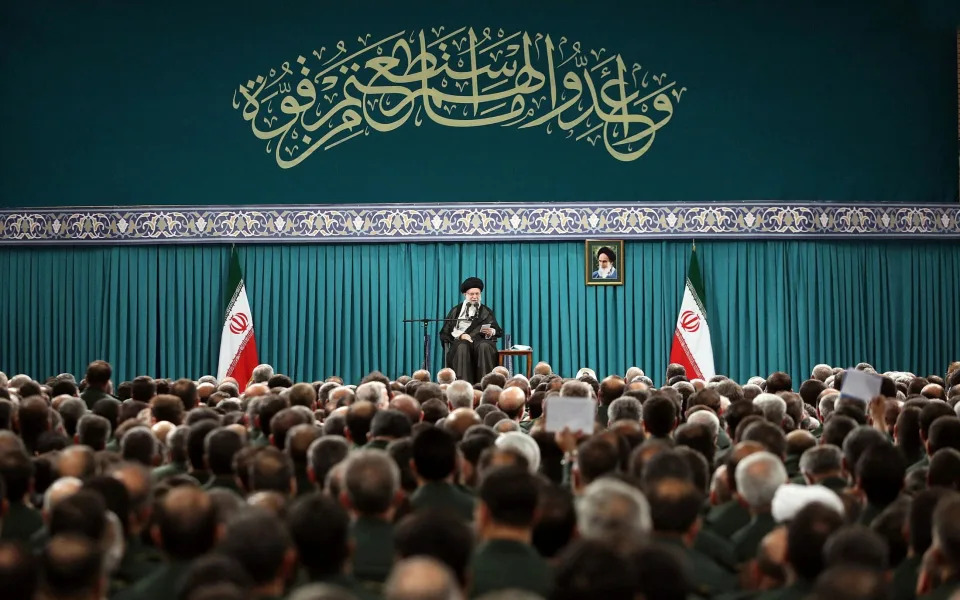
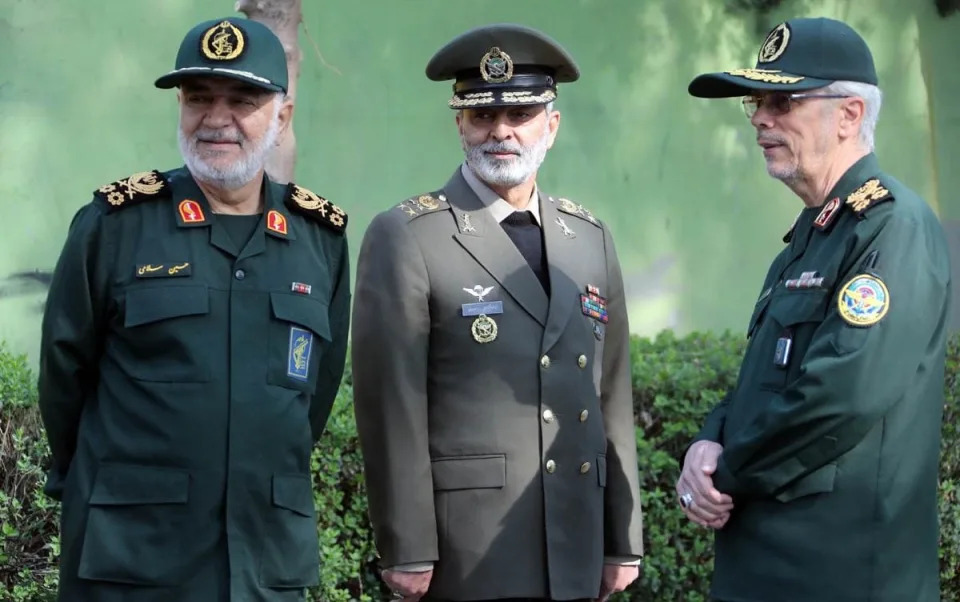
Besides its military role, the IRGC runs domestic news agencies and has very large commercial interests, including in telecoms, construction, and oil. Mr Azizi estimates around 60 per cent of the Iranian economy is in some way connected to the corps.
Its veterans have prominent political positions - the most well-known being Mohammad Bagher Ghalibaf, the current speaker of parliament and a former commander of the IRGC air force - and it is basically in charge of foreign policy in the Middle East.
Tellingly, the Swiss chargé d’affaires, who represents the United States in Tehran, was summoned not to the foreign ministry but to IRGC headquarters following the April 14 attack.
At the bottom of the organisation are men like Mr Rezaei and Mr Naseri.
All Iranian men who come of age at 18 are required to fulfil 21 months of compulsory military service in either the Iranian army or the IRGC.
Typically, the general staff of the armed forces of Iran determines the assignment of individuals.
But in practice, many young men find ways to get into the IRGC because it has a reputation for better pay and conditions than the official Iranian army, said Holly Dagres, a senior fellow at the Atlantic Council and curator of the Iranist, a weekly newsletter on Iranian current affairs.
That is one reason Britain has resisted demands by Israel and many Iranian dissidents to list the IRGC as a terrorist organisation: it risks criminalising large numbers of people whose loyalty to the regime might otherwise at some point be called into question.
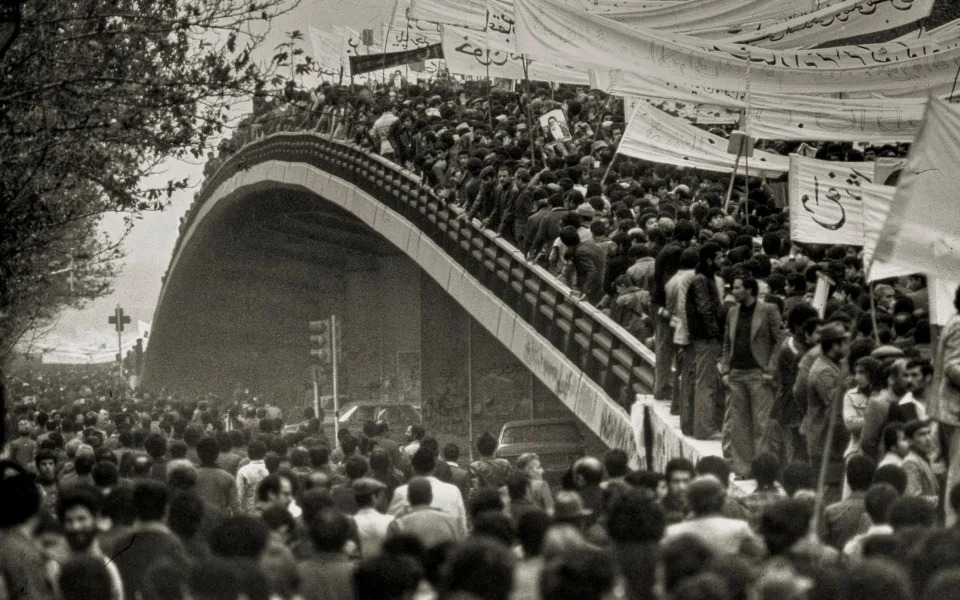
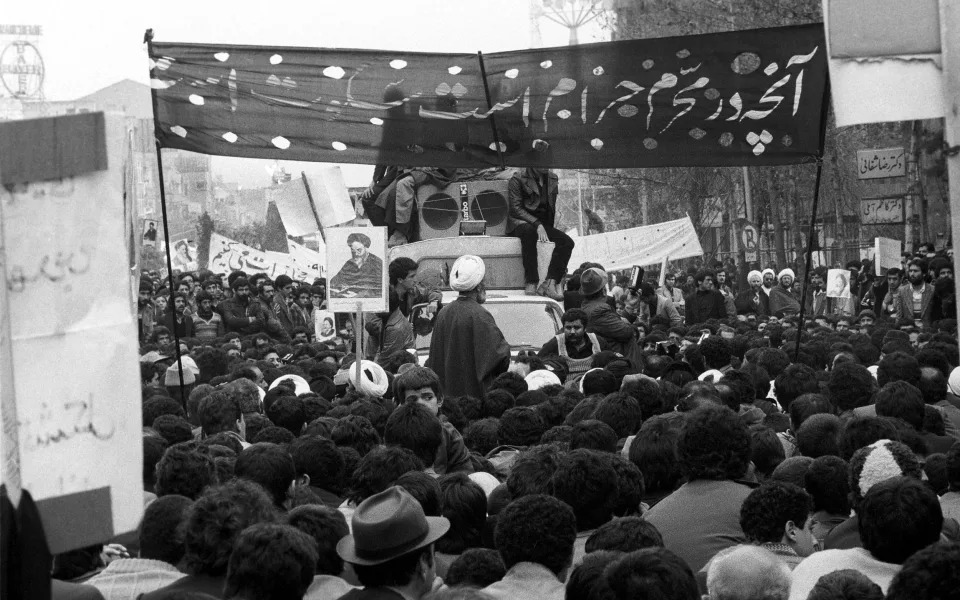
Militarily, the IRGC is believed to field around 190,000 personnel, not including the Basij, a volunteer paramilitary force affiliated with the corps.
Ground forces, devoted mostly to internal security and largely staffed by conscripts like Mr Naseri, account for about 150,000 of the total.
Aerospace, navy, and marine infantry branches account for most of the remainder. But it is the fifth branch, the overseas Quds Force, that gains the most attention abroad.
Fielding just 5,000 men according to the 2023 edition of the IISS think tank’s annual Military Balance, the Quds Force is responsible for coordinating the “axis of resistance” made up of proxy and allied militant groups including Hezbollah in Lebanon, Hamas in Gaza, and the Houthis in Yemen.
It orchestrated Iran’s intervention in the Syrian civil war, backs powerful militias in Iraq, and has been accused of running overseas assassination programmes targeting regime opponents.
In short, it is Israel’s main antagonist in the regional shadow war.
When Mr Rezaei, the conscript, says “our guys in the region” should be responding to the strike in Damascus, he means the Quds Force.
However, despondency is not universal.
Javad, a member of the Basij, told The Telegraph that he was annoyed with the government’s apparent hesitance before launching the strike.
“We must have retaliated immediately and without hesitation. Still, I’m satisfied it occurred, and it was a lesson for the Zionists,” he said by telephone.
“We were at a friend’s house, watching a film when it happened. Without delay, we hurried outside and made our way to our base, where more friends had gathered. Throughout the night, we mounted our motorcycles and waved our flag until morning,” he recalled.
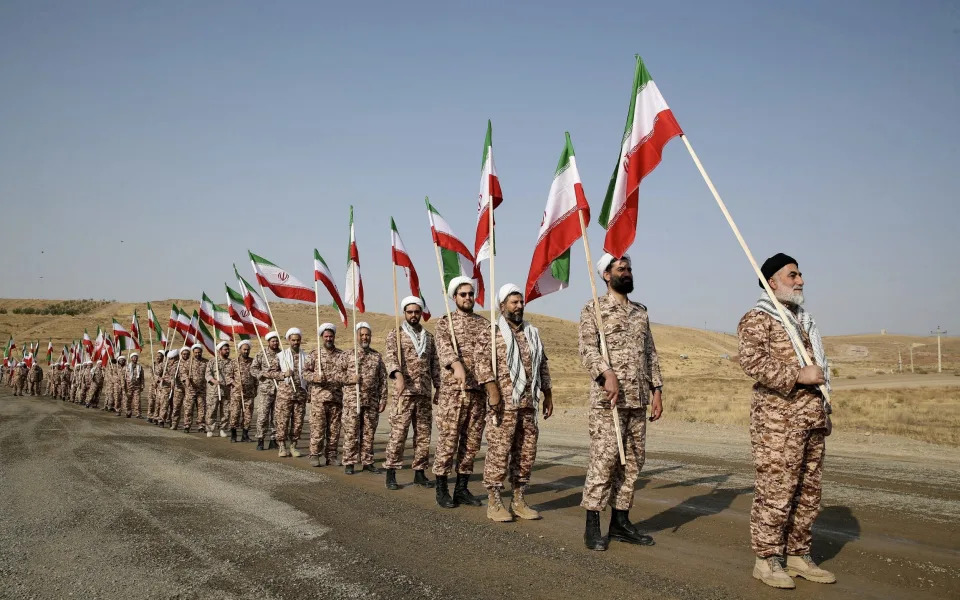
“If they dare take even a single step in response to our actions, I would settle for nothing less than the total eradication of the occupiers from the face of the earth,” he added.
But Iranian society is deeply divided. While pro-regime candidates still reliably claim the support of a hard base of about 15 per cent of voters, the historically low turnout at recent elections points to growing disillusion with the status quo, says Mr Azizi. Most observers agree that fatigue with corruption, economic stagnation and international isolation now cuts across all social classes.
Some anti-regime Iranians have even suggested an Israeli strike might finally put them out of their misery.
“A war is the only hope and option we can get rid of them [the IRGC], they harass us every day on the streets and the whole world looks at us as terrorists because of them,” said Fatemeh from the northern city of Tabriz, referring to Iranian authorities.
“It does not matter if I die in the war, I just want them to go and let Iran be free. I’m tired of the IRGC, Basij and all of them. I just want all of them to go.”
Conscript Mr Rezaei says he is struggling between a reluctance to fight, and a nagging sense of patriotic obligation to “defend” Iran.
“My uncle lost his life during the war with Iraq and I think I should just follow him and defend Iran from aggressors, but I hope war does not happen. I just want to finish my service so I can get my passport and leave Iran with my mother,” he said.
What's the mood in Iran as Israel mulls its response?
Not long after Iranian state TV informed the nation that the Islamic Revolutionary Guard Corps had launched hundreds of drones and missiles, people poured into the streets in Tehran and other cities to show their support for Iran's first-ever direct military action against Israel.
Iran had vowed to retaliate for the killing of seven IRGC officers about two weeks earlier, in an airstrike that hit an Iranian consulate in Syria's capital. Israel hasn't acknowledged carrying out that strike, but it hasn't denied it, either.
The world is still waiting to see four days later how Israeli Prime Minister Benjamin Netanyahu's government will respond to the Iranian attack, which caused "very little damage," according to the Israel Defense Forces. The IDF said 99% of the 300-plus weapons launched were intercepted or fell out of the sky before they even reached Israeli territory, thanks to the country's robust air defenses and help from its U.S. and European allies.
U.S. wouldn't participate in Israeli reprisal strike on Iran, officials says
As the U.S. works to prevent Israel's ongoing war against the Iran-backed Palestinian group Hamas from spreading into a much wider regional conflict, President Biden urged his Israeli counterpart right after the Iranian attack was thwarted, "to think about what that success says all by itself to the rest of the region," according to National Security Council spokesperson John Kirby.
Kirby said the U.S. was "working with international partners to work up options to hold Iran appropriately accountable."
But the White House has made it clear that the decision on how to retaliate will be Israel's to make, and that leaves plenty of room for anxiety across the tinderbox Middle East. But not too much, it would seem, in Iran.
Life goes on in Iran
Since the Iranian attack on Israel, there have been no signs that the Islamic republic is preparing for a war. Far from political and military leaders running for bunkers in fear of an Israeli reprisal strike, there have been no military drills, schools remain open. Iranian authorities haven't imposed any restrictions on air traffic.
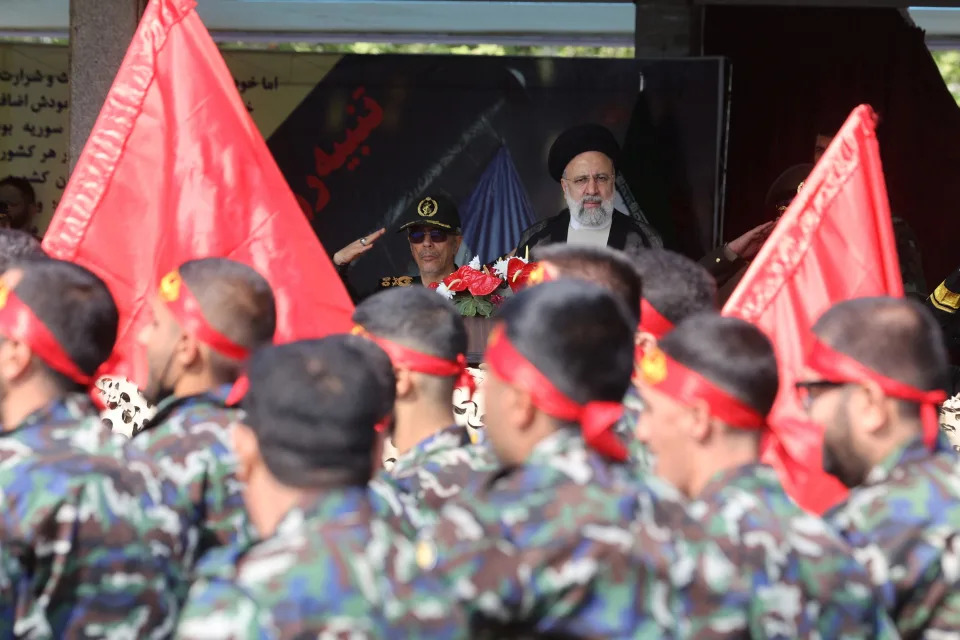
Even ordinary Iranians appear relatively relaxed. There has been no obvious rush on supermarkets by people trying to stock up on essentials, and everyday life has gone on largely as normal.
The only direct impact thus far has been a predictable hike in the value of foreign currencies compared to Iran's. The ensuing rise in some commodity prices has brought back long lines for gas, but those are familiar in the heavily-sanctioned nation.
But there is cause for concern among Tehran's ruling class, and most of it's rooted in those financial factors. Stifled under some of the toughest international sanctions imposed by the U.S. and its allies on any nation, Iran's economy has been crippled for years. There's sky-high inflation and Iran remains mired in a deep recession.
Iran's economic woes
For Iran's leaders, the economy is likely a first concern. A wave of resentment over the country's dire finances and its strict interpretation of Islamic law has manifested in political unrest and street protests in recent years. Some have even seen people chanting risky calls for a change of leadership.
But Iranian political analyst Hadi Mohammadi told CBS News he believes Iran walked the right line with its attack on Israel, and Mohammadi says Iran's leaders have their nation's backing.
"The Iranian people's social behavior against common enemies in wars and frictions has proven that they mostly stay united," he told CBS News, suggesting a sense of national unity in the face of a perceived foreign threat is greater than any quarrel Iranians might have with their own leaders.
He pointed to opinion polls carried out just days before the Iranian reprisal against Israel that showed a majority of people supporting the looming operation.
"Even some of them who were critical of the administration were supportive of a military response, so that the enemy would not be persuaded to repeat its actions," he said. "Of course, some of them were in favor of a diplomatic reaction and some of them totally disagreed with any military retaliation, but the majority agreed with a military response."
Iranians fear economic impact of "a war of any scale"
The Iranian people do appear divided, however, over their leaders' last move, even if most hope recent events won't snowball into an all-out war with Israel.
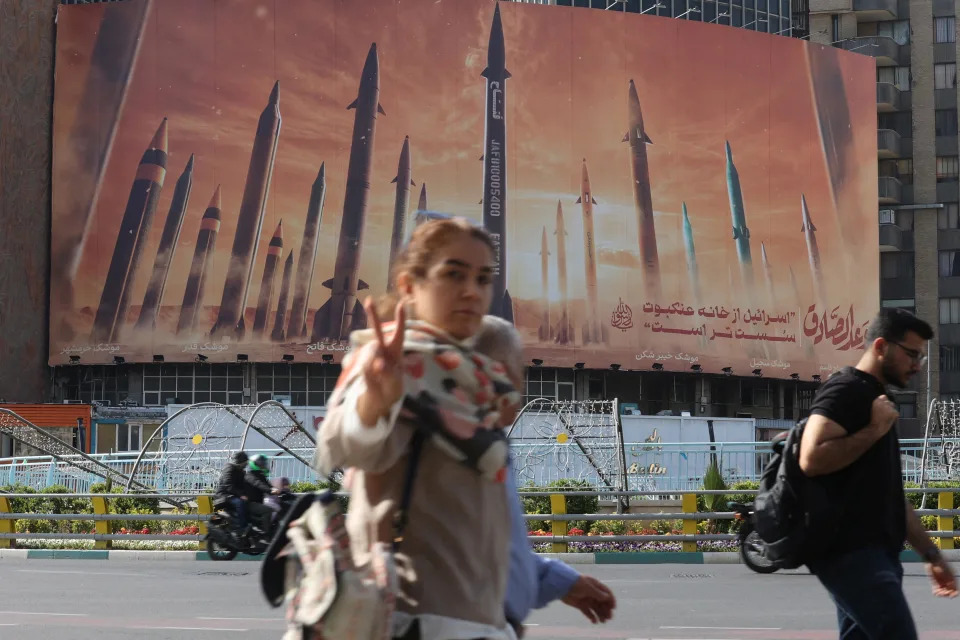
Very few Iranians are willing to speak openly against their government's policies, given Iran's strict laws governing political speech, but several shared their views with CBS News on the condition they not be fully identified.
Sali, a 30-year-old art graduate who's unemployed and lives in Tehran with her parents, said a war with Israel would be "devastating for the economy."
"I believe Iran's government is spending too much money on its proxies in the region and cares about the Palestinian issue more than taking care of its own people," she said. "That is the reason why people have so many economic problems."
"I totally disagree with any war. It is not good for people anywhere," said Reza, who works in the private sector. "The economy is already in a bad state, and a war of any scale will make it much worse. People cannot tolerate it, and I want peace for both nations."
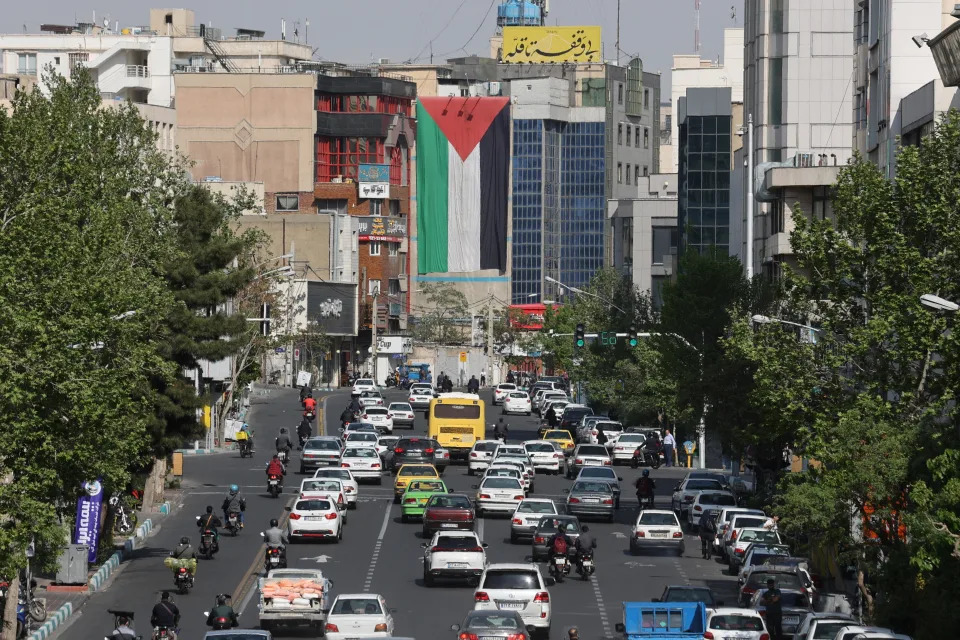
Iran's leaders — who have always refused to recognize Israel as a legitimate state — have threatened to respond to any Israeli counterattack with a much more lethal attack of their own.
"It was quite right to give a strong message to Israel," retired Iranian Air Force pilot Rahim Gasemi told CBS News this week. "If Israel attacks us again, we will strike again, too."
Many Iranians will be hoping it doesn't come to that.



